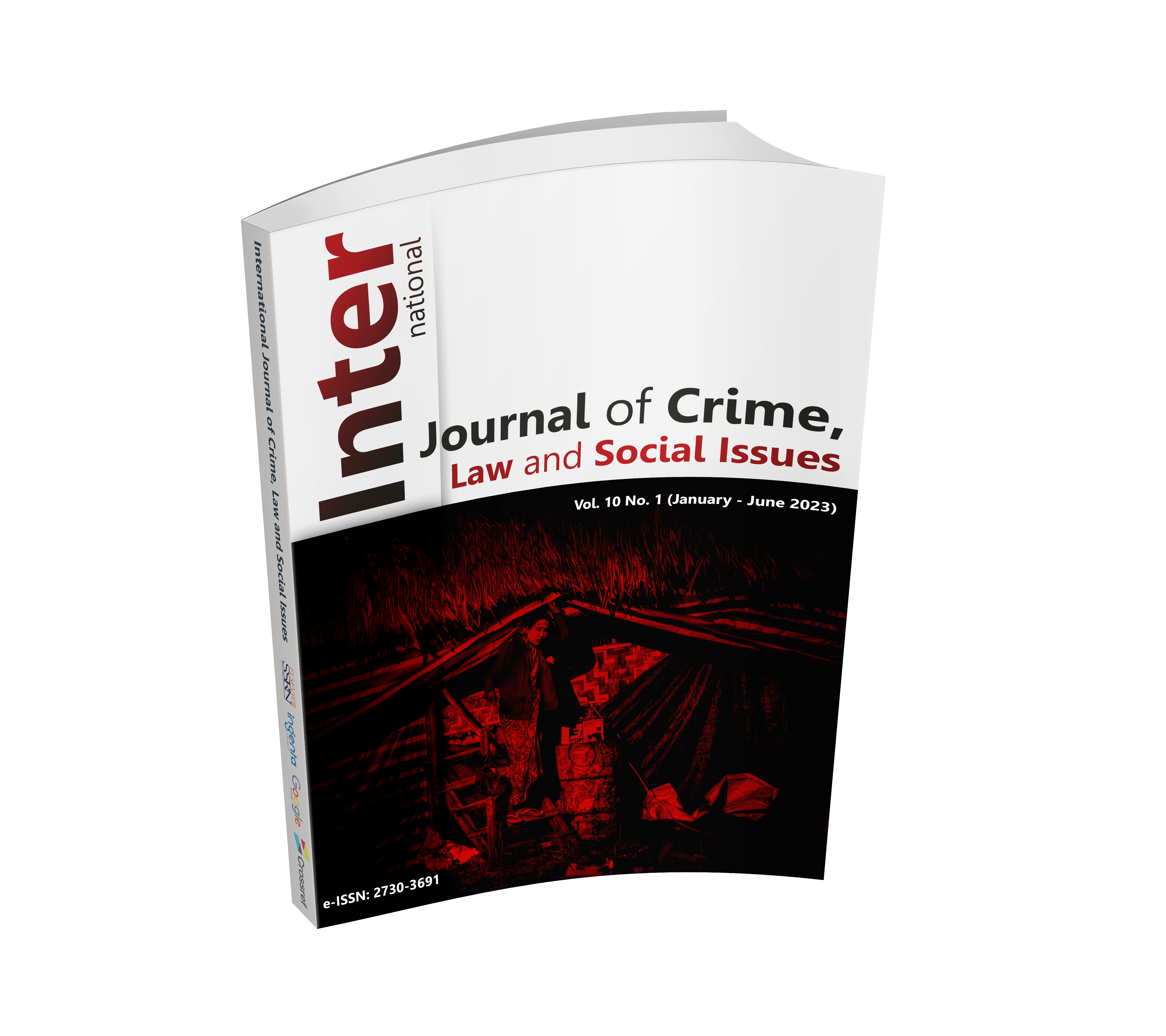UTILIZATION OF FORENSIC EVIDENCE IN DRUG: A CASE STUDY OF CASES UNDER THE PROVISION OF THAI LAWS CURRENTLY APPLICABLE IN THE PROVINCIAL POLICE REGION 3
DOI:
https://doi.org/10.14456/ijclsi.2023.4Keywords:
Evidence, Forensic Science, Forensic Evidence, Drug Case, Drug ProsecutionAbstract
This research aimed to study the factors affecting the use of forensic evidence in drug cases and the problems of drug prosecution in the Provincial Police Region 3 area. It was a mixed method consisting of quantitative and qualitative research. The research sample was police officers under the local police stations in the Provincial Police Area Region 3. The sample size was determined at a 95% confidence interval with a margin of error of 5%, and 385 samples were obtained for more comprehensive study results. In this study, 400 sample size was used. Data were analyzed statistically by percentage, mean, and standard deviation. Moreover, an in-depth interview with 14 key informants was derived by purposive selection. The results showed that: 1) Most police officers in this research were male, totaling 269 persons. 252 samples were aged 31-40, 241 had bachelor’s degrees, and 187 had 5-10 years of expertise. 2) The factors that affected this research were divided into 3 aspects: 1. The external and internal factors related to the use of forensic evidence overall was at a high level. 2. The opportunity factor of the use of forensic evidence overall was at a high level. 3. The knowledge of forensic evidence collection overall was at a high level for forensic evidence collection. 3) The problems of drug prosecution in the Provincial Police Region 3 included the role of forensic science in drug cases and the external and internal factors related to the use of forensic evidence in drug cases.
Downloads
References
Baskin, D., & Sommers, I. (2011). Solving residential burglaries in the United States: the impact of forensic evidence on case outcomes. International Journal of Police Science & Management, 13(1), 70-86.
Central Institute of Forensic Science. (2019). 2019 Annual Report. Retrieved from www.oic.go.th/FILEWEB/CABINFOCENTER29/DRAWER097/GENERAL/DATA0002/00002379.PDF.
Champod, C., Lennard, C., Margot, P., & Stoilovic, M. (2004). Fingerprints and other ridge skin impressions. Oxford: Taylor & Francis.
Chamsuwanwong, A. (2001). Forensic science 3 for crime investigation. Bangkok: TCG Printing.
Chonthawornpong. (2017). The Admissibility of Unlawfully Obtained Evidence under Thai Criminal Procedure Code. Master of Laws thesis, Chulalongkorn University.
Deka. (2000). Judgment of the Supreme Court No. 3146/2543. Retrieved from https://deka.in.th/view-91147.html.
Houck, M., & Siegel, J. (2009). Fundamentals of forensic science. 2nd ed. Massachusetts: Academic Press.
Kamhom, N. (2016). Research Methodology in Social Sciences. Maha Sarakham: T-Com Printing.
Koloy, N., & Witchuvanit, W. (2022). The Guideline for the Development of Knowledge about the Collection of Evidence in Forensic Science of Provincial Police at Trat Province. RPCA Journal of Criminology and Social Sciences, 4(1), 85-99.
Luandee, S. (2017). Trends of Using Forensic Evidence for Judge's Consideration. Doctor of Philosophy Thesis, Silpakorn University.
Na Ayutthaya, T. (2014). Hearing of scientific evidence at the court United States: Concepts and controversies that have not yet settled. Retrieved from https://dunlaphaha.coj.go.th/articles/361.
Narcotic Drugs Act, 2002.
Narcotics Control Act, 1979.
Office of the Narcotics Control Board. (2010). Survey on the Status of the Strength of Schools in the Prevention and Solution of Drug Abuse. Bangkok: Office of the Narcotics Control Board.
Pakvat, A. (2019). Attitude and Approach to Examine Crime Scenes in a Criminal Case of the Inquiry Officials under Chonburi Provincial Police Office. Master of Political Science Thesis, Burapha University.
Rehabilitation of Narcotic Addict Act, 2002.
Sinloyma, P. (2017). Supplementary Document for Lecture on Solving Criminal Problems through Legal Science. Lampang: Police Forensic Science Center 5.
Suwatcharapinun, S. (2007). Legal Science. Nakhon Pathom: Royal Police Cadet Academy.
Vimollohakarn, M. (2010). Seeking Evidence in Drugs Cases by Using Special Investigation methods. Master of Law Thesis, Thammasat University.

Downloads
Published
How to Cite
Issue
Section
License
Copyright (c) 2023 Authors

This work is licensed under a Creative Commons Attribution-NonCommercial-NoDerivatives 4.0 International License.










.png)


